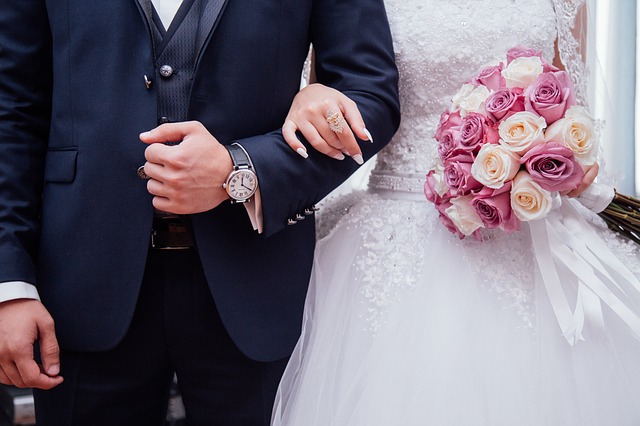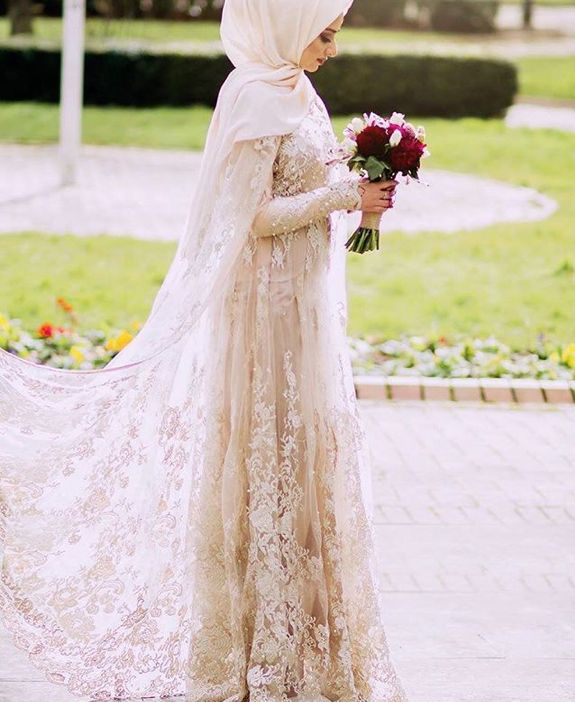In the exciting, bittersweet and somewhat tumultuous days leading up to a wedding, the young bride and groom experience natural, human nervousness. They often have butterflies in their stomachs; their anticipation further compounded by the myriad of chores and errands to be done in preparation for the wedding.
Their minds occupied by reveries of the impending change in their lives and lifestyles, they daydream often, seemingly lost in a trance-like state, ending up lying awake at night conjuring up images of scenes and interactions with their soon-to-be-spouse after the start of their married life.
The Days Leading Up to the Marriage
The presence and support of family and friends is an integral part of any marriage anywhere in the world, no matter what the religion and culture.
As the big day approaches, relatives and friends from abroad begin to descend upon and stay at the hustling and bustling family home that is about to witness a wedding.
Near and dear ones are fundamental in making this prominent milestone a memorable one for the bride and groom. Unless it is deliberately executed as a small-scale, downplayed, private affair, any wedding almost always involves a feast, banquet, or party, with loved ones in attendance, who shower the new couple with their blessings, gifts, dua’s and expressions of love.
The Love of Family and Friends
Undoubtedly, it feels wonderful to be the center of attention and to bask in the love everyone gives to you when you get married. In their excitement, they want to know everything about your to-be husband or wife, and your future in-laws as well.
During the carefree merrymaking and festive celebrations, amid the henna and jewelry, silks and flowers, sparkling lights and crisp currency bills, there comes a time, though, when the blurry, thin lines that demarcate boundaries of personal privacy, decency and social decorum, nonchalantly begin to be crossed.
It might start with harmless humor and jokes, which open the door to freer communication. Passive observation of the pre-wedding events and activities by some might prompt them to criticize the way things are being done, or to give suggestions. An invasive question or a hasty comment might escape their lips, followed by a taunt here, and an unnecessary remark there. An undercurrent of tension can begin to develop amid the superficial, innocuous facade of festivities.
Just like when a pot of water is brought to boil to make tea, if it is left unwatched or allowed to boil away at high heat, the scalding water will eventually overflow from the rim of the vessel, extinguishing the flame underneath it and making a mess. The solution is for the chef to constantly stand at the stove, warily watching the pot, in order to ensure that a perfectly flavored brew of tea is prepared and be sure that It is this meticulously tempered ‘tea’ that everyone truly enjoys.
So too, happens when many people of diverse ages and backgrounds come together for the sake of celebrating the wedding of a loved one: if left unchecked, the frivolous atmosphere can allow someone to cross limits. This can end up causing damage to the ongoing happy occasion, not to mention, to the marriage itself.
Unfortunately, sometimes the damage is irreparable!

The Eye
A woman whose older son or daughter is as yet unmarried might feel envious and resentful when her sister’s younger offspring gets married first; and that too to a picture-perfect mate, with spectacular celebrations on a scale that she cannot afford for her ward.
As a result, she might feel anger at the hand dealt out to her by Allah through His decree, and her envy might cause an ill effect on the marriage of her niece or nephew where she is present on every occasion, seething underneath her apparently calm exterior. This underlying envy and resentment might become the cause of some unwittingly nasty remarks and vile behavior on her part towards her unsuspecting sister’s family during the wedding celebrations.
Prophet Muhammad (peace and blessings be upon him) said, “Everyone who is blessed with something is envied.”
Whenever a person acquires a blessing, inevitably someone out there envies him or her for it. Envy can be described as a feeling of anger, resentment or dislike at the fact that another person possesses a blessing, often accompanied by a desire to see that blessing snatched away from him or her.
There is no doubt about the fact that the eye– is not just true, but that it also has a negative effect on others, especially during wedding celebrations. When the eye combines with envy, it can be even more detrimental.
In the contemporary world, it is getting more difficult by the day for young singles to find suitable and righteous spouses from honorable families. During the twenties and thirties, singles often undergo immense societal pressure to find a decent spouse. Therefore, when someone who has been on the search for years and is on the verge of desperation attends a wedding of another, envy can very well be borne inside his or her heart. If not in theirs, then in their parents’, who worry more for their offspring’s future welfare, prosperity and success than anyone else does.
Parents Are Advised to Use Discretion
Weddings are already a delicate time for both the bride and groom, who are nervous about starting a new chapter in their lives: a chapter regarding which they have no prior experience and no guarantee of protection from failure. They and their immediate families should take extra care to avoid being too open in displaying their blessings to all and sundry during this sacred union and its associated celebration.
It is advisable to be discreet when discussing monetary and material aspects of the wedding expenditure and preparations, because more often than not, there is more than one “rat” lurking within one’s circle under disguise.
He/she might be wearing a facade of sincerity to become indistinguishable from the crowd, plastering a fake smile on their face yet seething with resentment underneath at the fact that someone is getting a blessing that they wanted to get first!
The effect of the eye has been witnessed at many weddings in many real life cases, often in bizarre and eerie ways, in which weird things happened without any justifiable reason or discernible cause.
For example, at one wedding which I attended, the bride and groom both fell sick with high fever hours before their nuptials, and looked visibly taxed while sitting together all decked up, with the bride constantly coughing away and asking for prescription medicines.
At another wedding reception, the bride’s only neck piece, an antique that she bought painstakingly from another country just for her big day, broke into pieces just as she was putting it on at the salon. In the furor that followed to get it fixed, she lost her shoes en route to her wedding reception to which she was already hours late. She entered barefoot, but thankfully, her flowing dress was long enough to cover her feet!
In another case, the wedding was called off at the last minute because of a falling out between the bride and her to-be mother-in-law over a petty issue. In yet another case, the bride, who had agreed to her betrothal wholeheartedly, became mysteriously cold, aloof and depressed in the days leading up to her wedding, eventually calling it off because she thought her fiancé was too “insensitive” towards her feelings.
In almost all of the cases that involve the effect of the eye, there seems to be no tangible or explainable cause of the harm or loss that occurs. Everyone ends up asking, “What went wrong?” and no one can offer a logical answer to this question.
But, the fact remains: the wedding is either cancelled or ruined for the bridal couple, and there is no going back.
Clearly Mark the Boundaries, Observe Them
In order to be careful and discreet during weddings, it is important to not just demarcate boundaries in order to protect the new couple’s privacy, but to also ensure that the couple’s own parents and siblings do not overstep these boundaries.
Jokes about marital intimacy and intrusive questions about the giddy, “puppy-love” romance that takes place between the new husband and wife should be strictly avoided.
A lot of brides are given “the talk” a day or two before their wedding by older married aunts, sisters, cousins or other relatives, often in front of other girls during sleepovers, leading to an exchange of confidential “wedding night” stories that is strictly prohibited in Islam. This kind of “talk” then pressures the bride to divulge her own wedding night details to these same immature, giggly friends and cousins when she visits her parents’ home for the first time after her wedding.
Further, boundaries also need to be highlighted in order to quell the materialistic competitiveness that can arise. Many people will admit to the existence of an undercurrent of one-upmanship that exists in extended families, particularly during wedding celebrations. From the size of the hotel banquet hall to the number of guests, no one likes to be “outdone” in economic status and material wealth.
The parents of the bridal couple should therefore be very careful not to let their relatives get too nosy about the details regarding wedding preparations.
In an age where finding an agreeable and Allah-fearing husband or wife is itself becoming an uphill and increasingly challenging task, there is an urgent need to adhere to the principles of wisdom, simplicity, moderation and privacy found in Islam’s basic tenets of social etiquette.
At the end of the day, it is more important to have a long-lasting and happy marriage, than to have the “perfect”, wedding that the family grapevine gushes about for decades.
First published: April 2014
